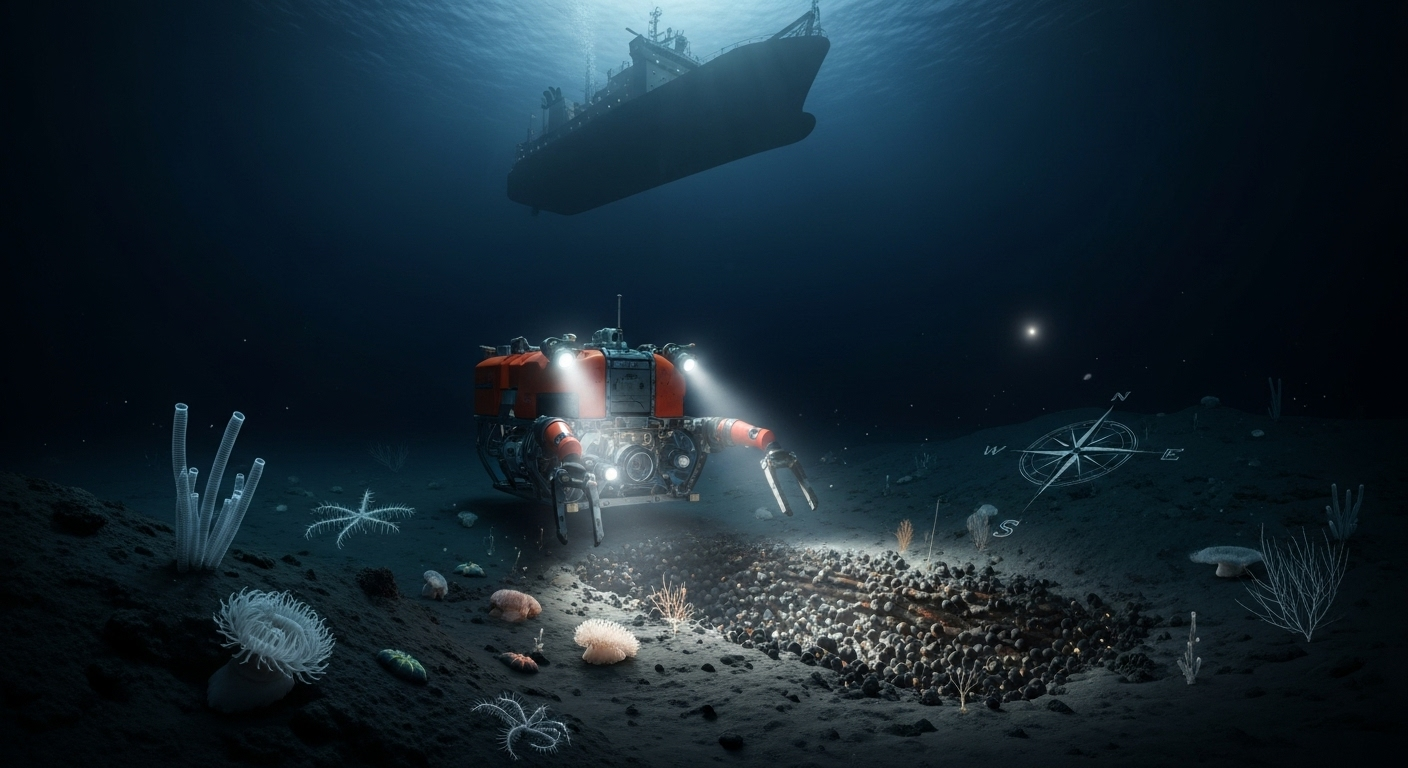Legal Challenges of Deep Sea Mining: Navigating Uncharted Waters
Introduction: As the world's appetite for rare earth minerals grows, the deep sea emerges as a new frontier for resource extraction. This nascent industry promises economic benefits but raises complex legal and environmental questions. Our exploration delves into the murky waters of deep sea mining legislation, examining the challenges of regulating this emerging field.

International Waters, International Laws
The legal framework governing deep sea mining primarily stems from the United Nations Convention on the Law of the Sea (UNCLOS), established in 1982. UNCLOS designates the seabed beyond national jurisdictions as the common heritage of mankind, to be managed for the benefit of all humanity. The ISA, created under UNCLOS, is tasked with regulating deep sea mining activities and ensuring equitable distribution of benefits. However, the ISA’s regulatory framework remains a work in progress, struggling to keep pace with technological advancements and growing commercial interest.
Environmental Concerns and Legal Responsibilities
One of the most pressing legal challenges in deep sea mining is balancing resource extraction with environmental protection. The deep sea ecosystem, largely unexplored and poorly understood, hosts unique biodiversity and plays a crucial role in global carbon cycles. Legal frameworks must address potential environmental impacts, including habitat destruction, sediment plumes, and noise pollution. The precautionary principle, enshrined in international environmental law, suggests that in the absence of scientific consensus, activities with potentially severe environmental consequences should be prohibited or strictly regulated.
Intellectual Property Rights in the Abyss
As companies invest heavily in deep sea mining technology, questions of intellectual property rights arise. How can firms protect their innovations while adhering to the common heritage principle? Current international law provides limited guidance on patenting deep sea mining techniques or discoveries. This legal ambiguity could deter investment and innovation, potentially slowing the industry’s development. Crafting a balanced approach that incentivizes technological advancement while ensuring benefit-sharing remains a significant challenge for legislators and policymakers.
Dispute Resolution in International Waters
With multiple stakeholders and overlapping jurisdictions, conflict resolution in deep sea mining presents unique legal challenges. While UNCLOS provides for dispute settlement mechanisms, including the International Tribunal for the Law of the Sea, these processes have yet to be tested in the context of deep sea mining disputes. As commercial operations commence, legal frameworks must evolve to address potential conflicts between mining companies, environmental groups, and nation-states, ensuring fair and timely resolution.
The Way Forward: Adaptive Governance
As the legal landscape of deep sea mining continues to evolve, adaptive governance emerges as a potential solution. This approach involves flexible, iterative policymaking that can respond to new scientific information and changing circumstances. Implementing adaptive governance in deep sea mining would require close collaboration between scientists, policymakers, and industry stakeholders. It would also necessitate regular review and revision of regulations to ensure they remain effective and relevant in this rapidly developing field.
Conclusion
The legal challenges surrounding deep sea mining reflect the complexities of regulating a new frontier in resource extraction. As technology advances and commercial interest grows, the international community faces the task of developing robust, equitable, and environmentally sound legal frameworks. The decisions made today will shape the future of our oceans and the distribution of their vast mineral wealth. As we navigate these uncharted legal waters, balancing economic opportunity with environmental stewardship and global equity remains paramount. The evolving legal landscape of deep sea mining will undoubtedly continue to be a focal point for international law and policy in the coming decades.





